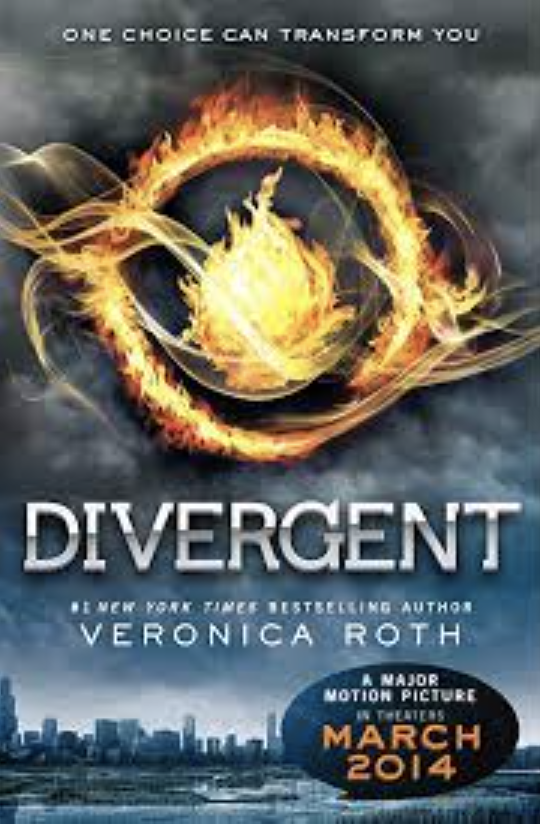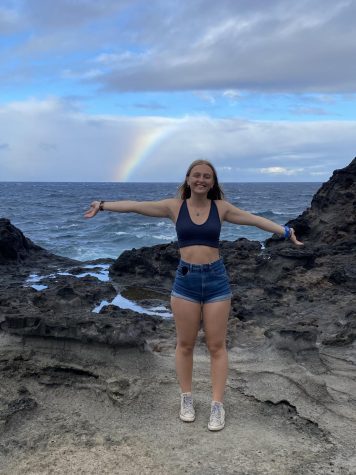“Divergent” by Veronica Roth
Book critiques and reviews.
The book cover depicts a decrepit city, shadowed by the burning symbol of the book’s “Dauntless” faction’s symbol.
April 25, 2023
If I was going to describe the “Divergent” series in one word, it would simply be struggle.
Not because the main character embodies everyday struggle throughout the series as many other dystopian heroines tend to, but because this series in itself is just an outright struggle.
Now, the first book I love purely out of the fact that it is one of my favorite childhood books. Although, with the rest of the books, I had the hardest time finding myself able to dive into such a series like I did with “The Hunger Games” and the “Stung” series, two other very distinct dystopian books that are similar to “Divergent.”
Most female main characters in dystopian novels have the same cookie-cutter “I’m not like the other girls” trope, which creates the perfect platform to present them to the spotlight. The only problem is that, unlike “Divergent,” most other dystopian novels have true depth to them.
Where “The Hunger Games” is a satirical criticism of the current state of government, “Divergent” is a basic dystopian novel that never delves below the surface of what it truly could be.
Beatrice “Tris” Prior, being the main character, is not interesting nor is she very distinct, as described by the author herself. She finds that she does not fit the mold of the society she lives in, making her a target for an organization hellbent on killing her and others like her.
Tris is a very basic main female character. She has no real depth, other than the fact that a test told her she had more than one singular personality trait, (which isn’t shown anywhere else, seeing as I found her very monotone and lacking spunk in ways that matter). She falls in love with another cookie-cutter mold of a “bad boy” trope, who seemingly has more personality than the main character herself.
I will not spoil it for those who find themselves reading this review of mine, but the ending irks me like no other. It feels wild and incomplete, and leaves the love interest with a path that feels haphazard and hurried, as if Roth couldn’t think of anything else.
Even with this thought though, Roth does create a very intricate situation that, if bestowed upon deeper and less surface level characters, would have thoroughly rung me from start to finish. As well as this, if she managed to delve deeper into the concept of what not fitting in truly means throughout society rather than ignoring it in a way, she could have created such a series that rivaled “The Hunger Games” in more ways than one.
Unfortunately, due to plot holes ― such as the “factionless” of the book ― and its lacking in thorough planning, I could not say I believe this is the best dystopian fiction I have ever read.



